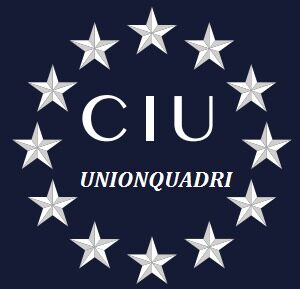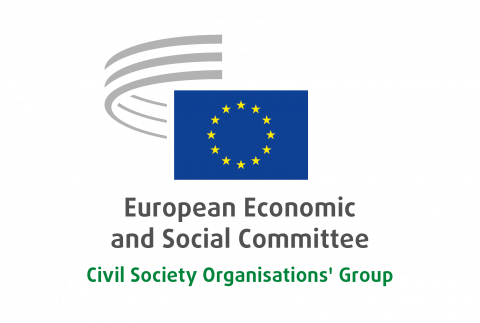Il gruppo delle organizzazioni della società civile è il nuovo nome del gruppo Diversity Europe del CESE.
Il 18 maggio 2022 il Gruppo Diversity Europe (Gruppo III) del Comitato economico e sociale europeo (CESE) ha deciso all’unanimità di cambiare nome in “Gruppo delle organizzazioni della società civile”. Il cambio di nome entra in vigore con effetto immediato.
Séamus Boland , presidente del gruppo delle organizzazioni della società civile, ha dichiarato: La crisi economica e finanziaria, la pandemia di COVID-19 e ora la guerra in Ucraina, hanno dimostrato che le organizzazioni della società civile contribuiscono attivamente alla resilienza e alla sostenibilità delle nostre comunità. Portano soluzioni alle sfide, difendono i nostri valori europei e sono essenziali per l’attuazione di politiche efficaci. Le organizzazioni della società civile sono attori chiave per un futuro sostenibile e devono essere riconosciute come tali.
In questo contesto, il Gruppo ha deciso di cambiare nome, al fine di fornire agli stakeholder una maggiore chiarezza sulla propria composizione e mission .
Il cambio di denominazione è particolarmente opportuno, alla luce della pubblicazione del rapporto finale sugli esiti della Conferenza sul futuro dell’Europa . La relazione propone di rafforzare le strutture esistenti, per riflettere meglio le esigenze e le aspettative dei cittadini dell’UE nel processo decisionale e afferma inoltre: In questo quadro, rafforzare il ruolo istituzionale del CESE e conferiregli poteri come facilitatore e garante di attività di democrazia partecipativa come dialogo strutturato con le organizzazioni della società civile e i panel dei cittadini.
Sfondo:
Il gruppo delle organizzazioni della società civile è uno dei tre gruppi che compongono il CESE. In linea con le modifiche introdotte nel Trattato di Lisbona, il Gruppo III è composto da altri rappresentanti e portatori di interessi della società civile, in particolare nel campo economico, civico, professionale e culturale
. I suoi membri provengono da organizzazioni che rappresentano i seguenti settori:
- Il mondo accademico (scienziati naturali, economisti, sociologi, ecc.)
- Partecipazione e responsabilizzazione dei cittadini
- Sviluppo della società civile
- Consumatori
- Ambiente, patrimonio e sviluppo sostenibile
- Agricoltura, pesca e comunità costiere, silvicoltura
- Tutela dei diritti umani (Tematiche riguardanti bambini, anziani, famiglie, uguaglianza di genere, gruppi emarginati e svantaggiati, migranti e rifugiati, minoranze, persone con disabilità, donne e giovani)
- Professioni liberali (avvocati, medici, ingegneri, ecc.)
- Piccole e Medie Imprese e Artigianato
- Economia sociale (enti di beneficenza, cooperative, fondazioni, mutue e imprese sociali)
Durante la Presidenza 2020-2023, il Gruppo delle organizzazioni della società civile concentra il proprio lavoro su “La povertà e il ruolo delle organizzazioni della società civile nel combatterla”.
Scopri di più sul gruppo sul sito web del CESE .
___________________________________________________________________________________________________________
Civil Society Organisations’ Group is the new name of the EESC’s Diversity Europe Group.
On 18 May 2022, the Diversity Europe Group (Group III) of the European Economic and Social
Committee (EESC) decided unanimously to change its name to “Civil Society Organisations’ Group”.
The change of name enters into force with immediate effect.
Séamus Boland, President of the Civil Society Organisations’ Group, said: “The economic and financial
crisis, the COVID-19 pandemic and now the war in Ukraine, have demonstrated that civil society
organisations actively contribute to the resilience and sustainability of our communities. They bring
solutions to challenges, they defend our European values and are essential for the implementation of
effective policies. Civil society organisations are key players for a sustainable future and must be
recognised as such.”
Within this context, the Group has decided to change its name, in order to provide stakeholders with
more clarity about its composition and mission.
The change of name is especially timely, in the light of the publication of the final report on the outcome
of the Conference on the Future of Europe. The report proposes strengthening existing structures,
to better reflect the needs and expectations of EU citizens in the decision-making process and further
states: “Within this framework, enhance the institutional role of the EESC and empower it as
facilitator and guarantor of participatory democracy activities like structured dialogue with civil
society organisations and Citizens’ panels.”
Background:
The Civil Society Organisations’ Group is one of the three groups that make up the EESC. In line with
the changes introduced in the Lisbon Treaty, Group III is made up of “other representatives and
stakeholders of civil society, particularly in the economic, civic, professional and cultural field”. Its
members are drawn from organisations representing the following fields:
Academia (natural scientists, economists, sociologists, etc.)
Citizens’ Participation and Empowerment
Civil Society Development
Consumers
Environment, Heritage & Sustainable Development
Farming, Fisheries and Coastal Communities, Forestry
Human Rights’ Protection (Issues concerning children, elderly, families, gender equality,
marginalised and underprivileged groups, migrants and refugees, minorities, persons with
disability, women and youth)
Liberal Professions (lawyers, doctors, engineers, etc.)
Small and Medium-sized Enterprises and Crafts
Social Economy (charities, cooperatives, foundations, mutual societies and social enterprises)
During the 2020-2023 Presidency, the Civil Society Organisations’ Group focuses its work on ‘Poverty
and the role of civil society organisations in combatting it’.
Find out more about the Group on the EESC website.
For more information, please contact:
Jasmin Klötzing, Communication Officer, Secretariat of the Civil Society Organisations’ Group
+32 (0)2 546 90 67
jasmin.kloetzing@eesc.europa.eu
The European Economic and Social Committee represents the various economic and social components of organised civil
society. It is an institutional consultative body established by the 1957 Treaty of Rome. Its consultative role enables its members,
and hence the organisations they represent, to participate in the EU decision-making process




